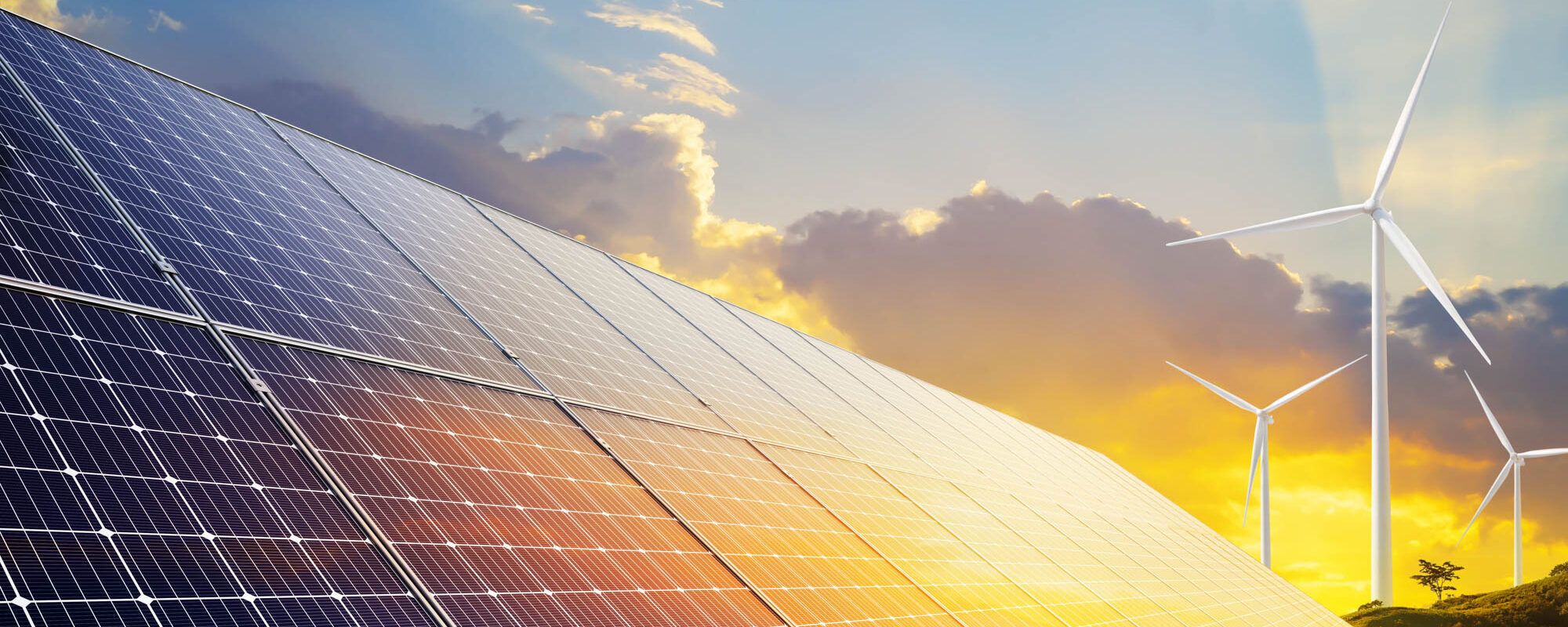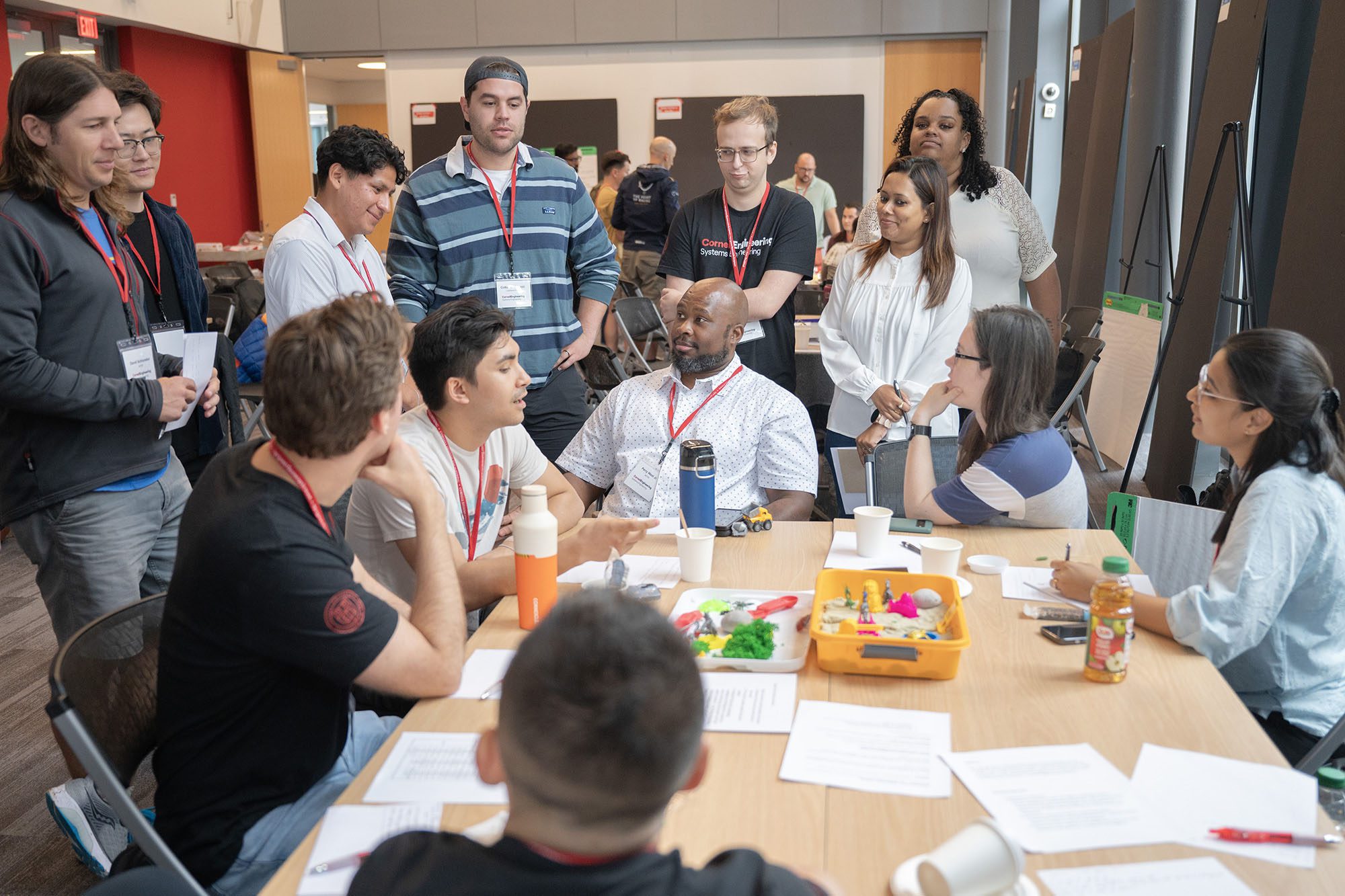In past centuries, the large availability of low-cost energy contributed to welfare worldwide. However, modern energy systems have mainly relied on fossil fuels. This has resulted in serious negative externalities, including social inequality and climate change. We are now facing the challenge of transitioning energy systems to sustainable solutions which includes shifting towards renewable energy sources, low-carbon technologies, improved resource efficiency, and integration of markets and infrastructure. The energy transition is at the core of climate change action, the circular economy and sustainable development. Join us and get ready to become a protagonist in the process of transforming energy systems.
Curriculum
- Analyze energy systems and energy and climate policy profiles and develop strategies for energy system transformation.
- Develop scenarios for the energy transition and a low-carbon future.
- Apply various mechanisms to build a low-carbon future and meet the goals of international agreements.
- Propose strategies, policies, technologies, projects and overall pathways for energy system transformation.
- Identify and explain the perspective and roles of stakeholders in the energy transition and implementation of the climate agenda.
- Assess the implications of policy interventions for market outcomes.
- Evaluate the competitiveness of different technologies in energy systems and construct competitive financial models for electricity generation projects.
- Conduct risk and sensitivity analyses for energy projects and systems.
Required courses
The energy systems M.Eng. pathway comprises 9 credits. The courses in this Pathway can also be taken by as a certificate within the Master of Systems Engineering program or by non-matriculating students as part of Systems Professional Certificate Program.
- SYSEN 5170— Energy Policies for Systems Transition, 3 credits, Fall
- SYSEN 5210—Economics of the Energy Transition, 3 credits, Jacob Mays, Fall (*)
- SYSEN 5120—Energy and Cimate Scenario Analysis, 3 credits, Charlle Sy, Spring (*)
- SYSEN 5240—Strategies for Climate Action, 1.5 credits, Semida Silveira, Spring
- SYSEN 5230—Energy Efficiency in the Circular Economy, 1.5 credits, Semida Silveira, Spring
(*) Choose one of these two courses
In past centuries, the large availability of low-cost energy contributed to welfare worldwide. However, modern energy systems have mainly relied on fossil fuels. This has resulted in serious negative externalities, including social inequality and climate change. We are now facing the challenge of transitioning energy systems to sustainable solutions which includes shifting towards renewable energy sources, low-carbon technologies, improved resource efficiency, and integration of markets and infrastructure. The energy transition is at the core of climate change action, the circular economy and sustainable development. Join us and get ready to become a protagonist in the process of transforming energy systems.
Your Instructors
-
Semida Silveira
Semida Silveira is a Professor of Practice in Systems Engineering with extensive experience in energy and climate issues. She focuses on science-based societal transformation, a global low-carbon circular economy, and sustainable development.
-
Jacob Mays
Jacob Mays is an Assistant Professor in Civil and Environmental Engineering. He focuses on the design and analysis of electricity markets.
-
Charlle Sy
Charlle Sy is a Professor of Practice in Systems Engineering specializing in systems dynamics and optimization models for decision-making under uncertainty. Her work has been applied to improve industrial and managerial efficiency.
Energy Systems Project Examples
| Faculty Advisor | Project Team | Project Title |
|---|---|---|
| H. Oliver Gao | Carbon Neutral Transportation for a Carbon Neutral Cornell | Electrifying Cornell’s Rental Fleet |
| H. Oliver Gao | Carbon Neutral Transportation for a Carbon Neutral Cornell | Sustainable Transportation Plan: Expanding EV Charging |
| H. Oliver Gao | Carbon Neutral Transportation for a Carbon Neutral Cornell | Mini Electric Shuttle Systems |
| Semida Silveira | Cornell University Sustainable Design | Ithaca Carbon Neutrality Team – Greenhouse Gas Neutrality and Building Renovation Policy in Ithaca |
| David Schneider | Cornell University Sustainable Design | Currents: HVAC Remote Occupancy Sensing |
| David Schneider | Cornell University Sustainable Design | Solarize |
The M.Eng. Programs
-
![Two students study outside Gates Hall in fall with Rhodes Hall in the background.]()
On Campus M.Eng. Program
The M.Eng. On-Campus degree is a full-time program that is completed in one year (fall and spring semester).
-
![A group of students sit around a table discussing something,]()
Distance Learning M.Eng. Program
The M.Eng. Distance-Learning degree is a part time program that is completed in 1.5 to 2 years, or more.


